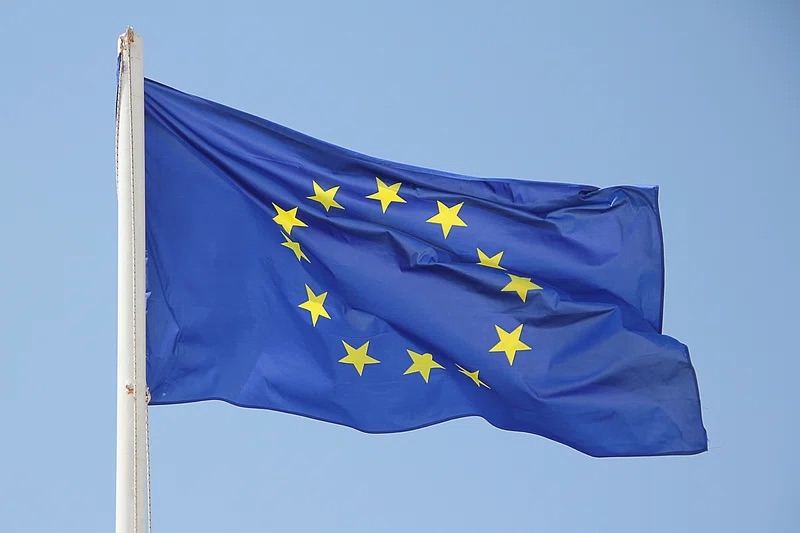
The Resurgence of Fascism in Europe: A Disturbing Trend Unveiled
If you take a look at Europe’s political state in 2023, don’t be surprised if you find relics of the early 20th century staring you down. All around, there’s been a sudden but steady rise in far-right nationalist movements claiming to bring freedom to the masses. Dubious anti-immigration rhetoric, strong anti-LGBTQ+ views and fierce Eurosceptic beliefs are some of the values these far-right parties are preaching.
November 2023 brought, amongst other things, the election of a new Dutch prime minister, Geert Wilders. His far-right party is known for anti-Islam and anti-immigration views, as well as their strong Euroscepticism as they appeal for the Netherlands to leave the EU. His party is one of many far-right parties climbing to power in Europe.
In 2022, Italy’s largest political party led by Giorgia Meloni won the general elections, making her the current prime minister of Italy. Her party, Brothers of Italy, denies its Fascist roots and is known for its anti-immigration, anti-EU and extreme nationalist views. In her race to election, Meloni downplayed her party’s Neo-fascist roots, she banned the use of the straight arm salute which some likened to the “Hitler salute” of the Third Reich, and she pushed forth her very popular anti-LGBTQ+ agenda. All this brought her election as Italy’s first female prime minister and leader of Italy’s first far-right government since World War II.
In Italy, a mix of economic problems and the refugee crisis offered fertile ground for ultranationalist sentiments. Sweden and the Netherlands are also being ruled by far-right parties as they grapple with a clash between multiculturalism and a desire for preservation of national identity.
Romania’s rising right-wing, populist and nationalist party is one of great concern to me. Beautifully named the Alliance for the Union of Romanians (or AUR, meaning “gold” in Romanian), it has nothing to do with unity or love for your compatriots. Its leader, George Simion, boasts of trying to unite Romanians living all over the globe while in the same breath demonizing Hungarians living in central and northern Romania. Speaking of Hungary, their prime minister, Viktor Orbán, has been openly making neo-Nazi statements and pushing for limitation of the free press.
The historical wounds of these nations also play a role. In Romania, the memory of authoritarian regimes intertwines with the search for identity post-communism. According to a poll done by Avangarde, 36% of the voters of Romania’s far-right party are aged 18-36, their biggest percentage. In a country where ex-communist leaders are still heads of government 30 years after the fall of communism, it’s easy to see why young people feel desperate to rewrite their stories.
So why are so many people pushing for a regression in openness and more laws against diversity? Is it the case that the pendulum has swung too far into the direction of liberalism or are these strong nationalist sentiments a result of a never before seen increase in immigrants entering Europe?
A 2019 study from politico.eu looked at trends among voters for the European Parliament. “In most EU countries voters picked migration as a top political issue ahead of the European Parliament election,” says the article. It also cites that “Voters in most EU countries listed terrorism as the greatest threat to the bloc.” To put this into perspective, “2.3 million immigrants entered the EU from non-EU countries in 2021, an increase of almost 18% compared with 2020,” according to the European Commission.
This focus on migration serves as a concerning barometer for the rise of racist, Islamophobic and xenophobic sentiments across the continent. The fact that voters in various EU nations listed migration as a primary concern suggests a deep-seated apprehension towards immigrants and refugees, often fueled by narratives perpetuated by far-right groups linking migration to terrorism and posing it as a threat to Europe’s stability. This disproportionate emphasis on migration as a pivotal political issue not only reflects a concerning trend but also amplifies the growing influence of discriminatory ideologies, contributing to the normalization of xenophobic and prejudicial attitudes towards marginalized communities within Europe. One only has to take a look at France’s far-right movement and their strong opinions against the hijab to comprehend the amount of hatred this type of propaganda brings.
The UK’s recent partnership with Rwanda to stop migrants from entering through the English Channel further proves the amount of xenophobia present in Europe right now. This contentious move by the UK government has been met with widespread criticism, deemed by some as an act of irresponsibility and a diversion from pressing domestic issues. Labour Party leaders and former heads have decried the policy as unworkable, extortionate, and fundamentally cruel.
This hatred toward immigrants only invalidates the natural flow of human migration and economic mobility within the continent but also underscores the vital role of migrants in the workforce and in sustaining the economy. Take, for instance, the mass movement of lower-class workers from Romania seeking opportunities in the West; this opens up low-paid jobs for immigrants in Romania searching for jobs in Europe. The whole system is rigged against the lower class and enables governments to treat human beings like cattle to be moved from country to country.
There is no denying that the push towards liberalism has, paradoxically, catalyzed the emergence of strong opposition. This growing divide between the two ideological sides has created an atmosphere of intensified confrontation, escalating tensions, and reinforcing the radicalization of both ends of the spectrum. At the end of the day, this deepening divide echoes some of Europe’s dark past, suggesting a bleak future for democracy.

